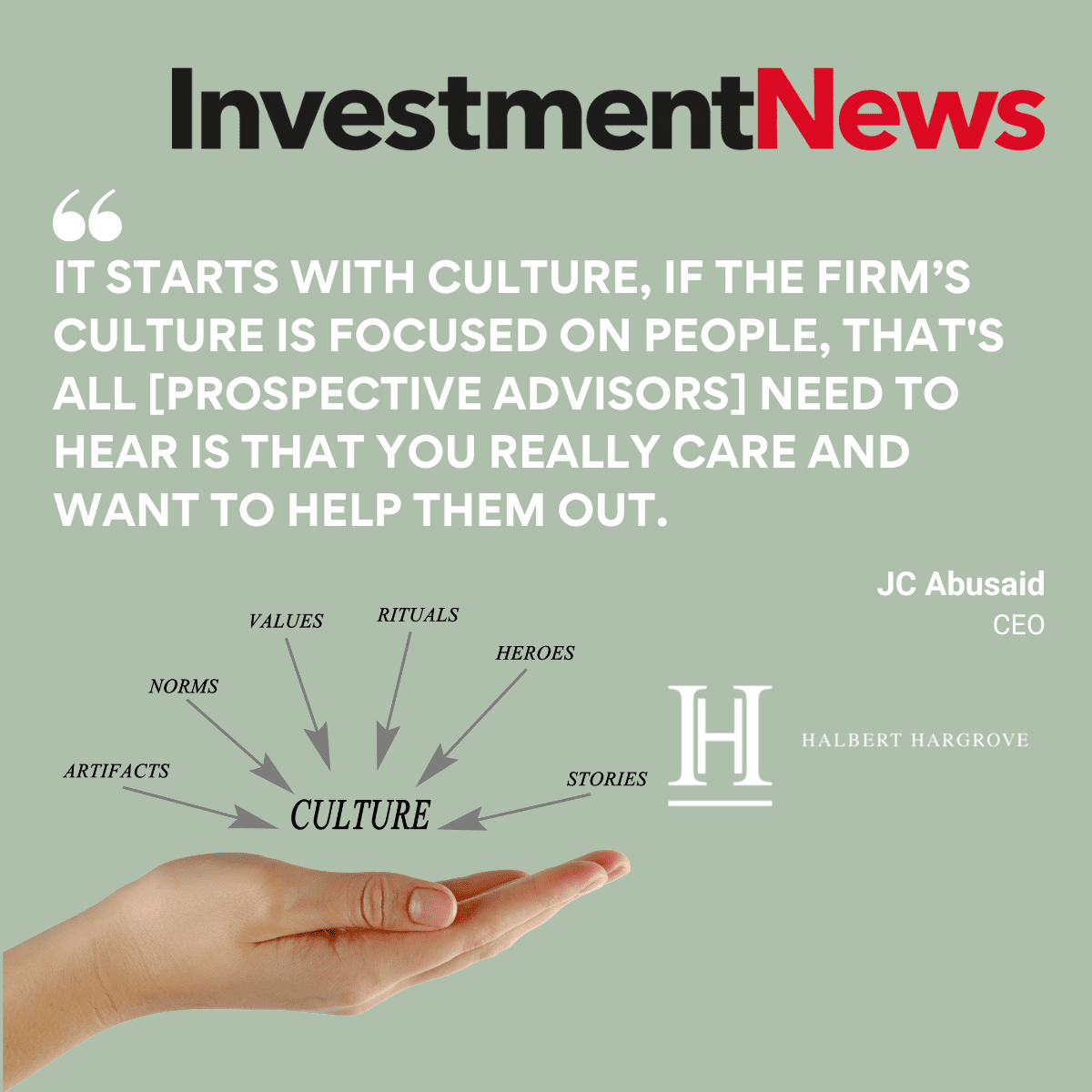By Josh Welsh, InvestmentNews, featuring JC Abusaid, CEO/President and Brian Spinelli, CFP®, AIF®, Co-Chief Investment Officer
Halbert Hargrove executives shine a spotlight on their strategies, from market resilience and diversification to culture and advisor development.
Talk to any advisory or investment firm across the country and they’ll likely tell you the same thing: they’re scrambling – and struggling – to identify effective strategies for recruiting and developing the next generation of advisors. Part of the issue can boil down to a firm’s growth strategy.
When it comes to Halbert Hargrove’s growth strategy, Brian Spinelli, co-chief investment officer at the Long Beach, California-based RIA, emphasizes organic expansion and employee ownership. They’re over 100 percent employee-owned, with a long-term succession plan in place.
“We have not been looking at the private equity money,” he shares. “As few as outside shareholders, the better. We’ve decided to stay employee owned.”
The firm has traditionally avoided trying to consolidate with or be taken over by other firms, Spinelli notes, because it would go against the culture the firm’s founder, Russ Hill, built.
This focus on culture and continuity extends to the firm’s approach to hiring and training the next generation of advisors.
“We continue to focus on building that next gen of advisors organically,” he says, highlighting the average advisor age at the firm is between 40 and-45.
At the core of the firm’s talent strategy is a robust internship program, the firm’s CEO JC Abusaid highlights. Rather than relying on short-term summer placements, the firm onboards 4-6 interns at a time, immersing them in substantive work and exposing them to all aspects of the business.
The internships are structured as longer-term commitments, allowing the firm to assess talent and build a pipeline of potential future hires.
Abusaid has observed a notable shift in the mindset of next-gen candidates. Whereas early on, many were hesitant about the path to becoming an advisor, today’s applicants exude confidence and a clear vision.
“They don’t see it as carrying a boulder up the hill,” he says. “They see it as, ‘Well, you guys did it, so of course I’m going to do it. How do I come on and do what I need to do to get there?’”
Abusaid affirms that firms who focus on culture, have a developed roadmap and are highly adaptable, willing to adjust timelines and goals based on evolving needs and priorities, will make them standout amongst other RIAs in the industry.
“It starts with culture,” he says. “If the firm’s culture is focused on people, that’s all [prospective advisors] need to hear is that you really care and want to help them out.”
“That’s what we do, we’re dynamic,” he added. “If it doesn’t work out, we change it. And people love that too about the firm. We adapt to the reality.”
Spinelli agrees, highlighting it’s been key to the firm’s retention rate.
“If people feel good at their job and they’re happy and they’re not feeling threatened, that’s where we get the retention.”


